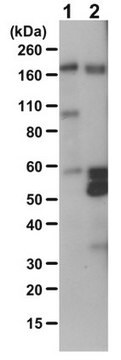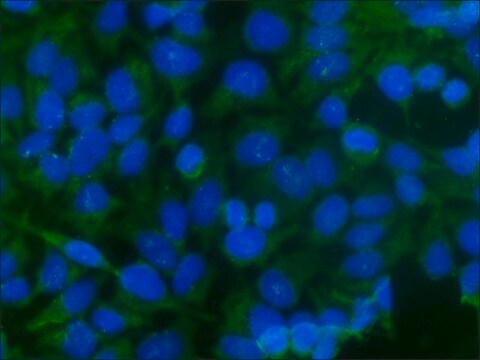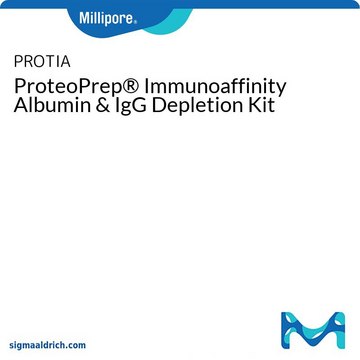16-454
Anti-Phosphotyrosine Antibody, clone PY20, HRP Conjugate
clone PY20, Upstate®, from mouse
Synonym(s):
PY20, anti-phosphotyrosine antibody
About This Item
Recommended Products
biological source
mouse
Quality Level
conjugate
peroxidase conjugate
antibody form
purified immunoglobulin
antibody product type
primary antibodies
clone
PY20, monoclonal
species reactivity (predicted by homology)
all
manufacturer/tradename
Upstate®
technique(s)
ELISA: suitable
western blot: suitable
isotype
IgG2b
shipped in
wet ice
target post-translational modification
unmodified
Gene Information
human ... PID1(55022)
General description
Specificity
Immunogen
Application
Signaling
General Post-translation Modification
Quality
Target description
Physical form
Storage and Stability
NOTE: DO NOT FREEZE. For maximum recovery of product, centrifuge the original vial after thawing and prior to removing the cap.
Legal Information
Disclaimer
Not finding the right product?
Try our Product Selector Tool.
signalword
Warning
hcodes
Hazard Classifications
Aquatic Chronic 2 - Eye Irrit. 2 - Skin Irrit. 2 - Skin Sens. 1
Storage Class
12 - Non Combustible Liquids
wgk_germany
WGK 3
flash_point_f
Not applicable
flash_point_c
Not applicable
Certificates of Analysis (COA)
Search for Certificates of Analysis (COA) by entering the products Lot/Batch Number. Lot and Batch Numbers can be found on a product’s label following the words ‘Lot’ or ‘Batch’.
Already Own This Product?
Find documentation for the products that you have recently purchased in the Document Library.
Our team of scientists has experience in all areas of research including Life Science, Material Science, Chemical Synthesis, Chromatography, Analytical and many others.
Contact Technical Service










